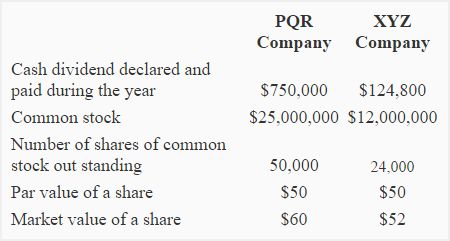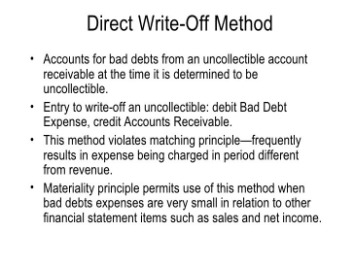
However, the sheer number of features and strong accounting still make QuickBooks Online a good option for small businesses. QuickBooks Online comes with a wide breadth of features and has the complex accounting capabilities that small business owners need. QuickBooks Online also has a few unique features you won’t find elsewhere, such as QuickBooks Live Bookkeeping service and QuickBooks Capital built-in lending. With an overall rating of 4.5/5, QuickBooks Online makes our list of the best accounting software for small businesses. As a QuickBooks ProAdvisor, Mark has extensive knowledge of QuickBooks products, allowing him to create valuable content that educates businesses on maximizing the benefits of the software. QuickBooks Solopreneur works very well for one-person businesses, especially those with a limited client base and minimal expenses and income streams.
QuickBooks for Small Business: Which Version Do You Need?
Plans for up to five users are available and payroll can be added for an extra $500/year, plus $5/employee each month. Daytime live chat and phone support are available during weekdays. The best bookkeeping services handle your target tasks without breaking your business’s budget, integrate with your accounting software and offer a dedicated line https://www.online-accounting.net/why-would-a-company-use-lifo-instead-of-fifo/ of communication with a live bookkeeper. In addition, consider the availability of add-on services like tax planning, payroll and human resources support. Wave is a simple solution for very small businesses that need a place to consolidate bookkeeping records and invoices, but don’t have to log more than a handful of transactions each day.
Bench: Best for new businesses
- Click here for the latest QuickBooks Online pricing, promotions, and subscription information.
- QuickBooks is the #1 accounting for small businesses.4 It offers the most comprehensive feature set that enables small business owners to manage more of their business.
- Here is an example of a sales receipt for a product with an active price level.
- Take advantage of product demos and introductory calls to find the right service.
- QuickBooks Online is one of the company’s most popular accounting software choices for small-business owners.
The QuickBooks Simple Start plan costs $30 per month and supports one user. As part of a special deal, the first three months will only cost you $15 per month, provided you skip the free trial. QuickBooks Payroll is not included in your QuickBooks Online subscription. You will need to purchase a separate QuickBooks Online Payroll monthly subscription to use this feature. A 30-day free trial is available if you’d like to test out QuickBooks Online Payroll before signing up.
How to create a price rule with QuickBooks price levels
Whether you are a business owner starting a brand new small business or moving your existing books online, we have several QuickBooks Online subscription options to fit your needs as your business grows. The QuickBooks Online plan that’s best for you largely depends on the number of users who will be using the program, the size of your business and your particular needs. If you are self-employed and report income on Schedule C of your personal income tax return, the QuickBooks Self-Employed plan will likely make the most sense.

Enterprise Software Bundle
QuickBooks Self-Employed lets you import transactions from your credit card, bank, PayPal and more and automatically sort them into tax categories. You can even take photos of your receipts to match them to existing expenses. We spend hours researching and evaluating each accounting software system we review at Merchant how to invoice us Maverick, placing special emphasis on key characteristics to generate our ratings. When comparing QuickBooks Online with two of its top competitors, Xero and FreshBooks, there are some areas where QBO comes out on top. In terms of features, integrations, reporting, and ease of use, QuickBooks holds its own.

Today’s leading accounting platforms offer standard security features such as data encryption, secure credential tokenization and more. While human error will always play some role in security breaches, you can be confident in your accounting platform when it comes to keeping your information safe. The inventory management and job costing features are more robust in QuickBooks compared to QuickBooks Online. QuickBooks Online is a leader in the accounting industry with it being the bookkeeping software of choice for many accountants, certified public accountants (CPAs) and bookkeepers. When comparing it to other bookkeeping providers, such as FreshBooks and Xero, we note that all three have a 30-day free trial to test the system out.
Your business size and structure will determine which QuickBooks Online plan is best. If you’re a single freelancer, you won’t need to manage any other employees, and you won’t need to track many sales (if any) – so the Self-Employed Plan is best for you. We’ve ranked the best self-employed accounting software, and QuickBooks is at the top. Setting up the software involves plenty of one-time tasks that you’ll want to get right the first time, like connecting your bank account and setting up a series of automated processes and templates. Through Live Bookkeeping, you’ll get a single one-on-one session that can clear up any questions and start your accounting software subscription off on the right foot.
QuickBooks Online’s biggest advantage is its ability to be accessed from anywhere with an internet-enabled device. Learn about all the differences in our comparison of QuickBooks Online vs Desktop. The A/P section focuses on vendor management, bill management, bill payments, and other payable-related transactions. A/P features include creating vendors and bills, recording purchase orders and converting them to bills, creating service items, and recording full or partial bill payments. With QuickBooks Essentials, you can track billable time by job and assign it to a specific customer—something you can’t achieve with Simple Start.
Small businesses that use QuickBooks for their accounting needs may have noticed that the company is always in a state of flux, changing in direct response to client feedback. QuickBooks’ recent revamping of its payroll platform is a testament to that commitment to stay responsive and on-trend. Both include the basic reports you’d expect to find with accounting software, such as a balance sheet, a Profit & Loss report, a cash flow statement, etc. Perhaps the biggest area where QuickBooks Desktop falls short is that its Pro and Premier versions will soon be discontinued for new users. While QuickBooks Enterprise will still be an option, this is powerful software with an expensive price tag that will be too much (in terms of features and pricing) for most small businesses.

Businesses that have purchased one-time licenses of the locally-installed QuickBooks Desktop versions that have been sunset can still use the software’s accounting features. However, these versions don’t receive security updates, live support, or access to cloud-based services such as live bank feeds, QuickBooks Desktop Payments, or QuickBooks Desktop Payroll. FreshBooks tailors its plan tiers to business type, making it easier to navigate your options.
Some of the other 20-plus built-in standard reports available include P&L by month and customer, quarterly P&L summaries, and general ledger. Our internal case study compares the four standard QuickBooks Online plans for small businesses across major accounting categories and functions to help you decide which one fits your needs. We excluded QuickBooks Solopreneur because it’s not a double-entry accounting system. This option is best for large businesses that could benefit from the extra support features, like a dedicated manager or virtual training classes. QuickBooks Online also offers more automation features, which might be a better fit for small businesses — the more tasks you can delegate to the software, the more efficient your business will be. QuickBooks Desktop also has a more dated and harder-to-navigate UI than QuickBooks Online.
The Premium and Elite plans also support automatic filings for state new hire paperwork. QuickBooks Advanced is best for enterprise businesses with support for extra users and the new features which help businesses operate more efficiently at scale. You’ll be able to track bills, set up recurring billing, track expenses, record payments in multiple currencies, and scan bills to keep abreast of all https://www.quick-bookkeeping.net/ the money your company is owed. You can also create a supplier database and generate purchase orders to help manage your accounts payable. This plan is best for small businesses, whether an LLC run by just one individual or a simple partnership. It’ll help someone keep their accounting data in one place, although it doesn’t offer many bells and whistles that could be useful for a larger operation.
QuickBooks Simple Start is ideal for solo entrepreneurs, gig workers, freelancers, and businesses that only sell services. QuickBooks Online Essentials does everything that Simple Start will do and adds the ability to manage bills and track time. QuickBooks Online Plus gives you the functionality of Simple Start and Essentials with the added ability to track inventory and track profitability by project. The best bookkeeping services take care of basic bookkeeping tasks, like reconciling bank statements, inputting transactions and generating financial reports. You should be able to directly call or message your bookkeeper with questions whenever necessary, and some services offer add-ons for tax planning and payroll.
QuickBooks, FreshBooks and Square Invoices all offer a 30-day free trial. However, the main difference between these three is that Square offers a free service (you can upgrade to the Square Invoices Plus for $20 per month for more customizable features). Additionally, while QuickBooks starts at $7.50 per month and FreshBooks starts at $2.50 per month (on introductory offers), Square Invoices starts at $29-plus per month for its paid subscription. You’ll also be able to send recurring payments—for subscriptions, for example—as well as schedule when you’d like to send out your invoice. QuickBooks also makes customization easy, from logos and colors as well as the ability to preview these changes before sending it off to a customer.

